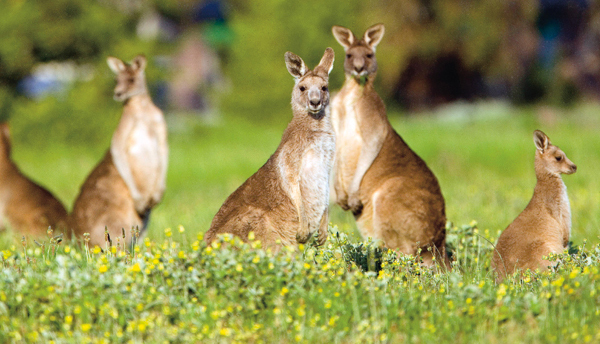The RSPCA believes people found guilty of abusing animals are not facing penalties tough enough to reflect the depravity of their crimes or to deter repeat offenders.
The claim has been illustrated by an incident in the central Victorian town of Seymour in October 2011, when a group of men captured a young kangaroo and tormented it for several hours.
The kangaroo was driven around town in a car boot, then released down the main street where it was almost hit by cars. Later the animal was taken to a park where it was struck with sticks and by hand and kicked in the head with steel-capped boots then thrown against a tree. Parts of the abuse were filmed on a mobile phone.
The trio initially avoided conviction and were given good behaviour bonds and fines of $850 to $2500. The Office of Public Prosecutions appealed, and the men were eventually convicted and their fines increased. Two received community corrections orders and the other a suspended sentence.
RSPCA Victoria’s inspectorate manager, Allie Jalbert, said sentences were falling short of community expectations and were not providing a deterrent to repeat offenders – a disturbing trend considering studies showed animal cruelty could be a precursor to violence against humans. ”We wouldn’t see sentences that get anywhere near [the maximum penalties],” she said. ”The same people are absolutely re-offending and even when they’re re-offending we’re not necessarily seeing tough penalties even the second or third time.”
Ms Jalbert said the most effective punishment was to ban the offender from owning or caring for a pet. Bans of up to 10 years can be imposed under Victorian law.
Of 326 animal cruelty cases prosecuted through Victorian Magistrates Courts between 2010 and 2012, the most common punishment was a fine.







